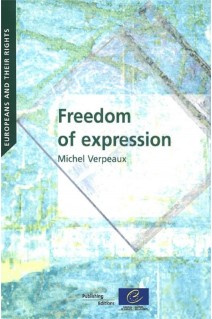



Freedom of expression is not absolute, even though it is a fundamental right enshrined in the European Convention on Human Rights. Under the terms of the Article 10 of the Convention, its exercise may be subject to such restrictions as are prescribed by law and are "necessary in a democratic society" in order to uphold the rights of all individuals.The author compares and analyses the protection of and limits on the right to freedom of expression in the case law of European constitutional courts and the European Court of Human Rights, drawing on practical examples, to see whether a common European approach exists in this area.
Introduction
Chapter I - The place of freedom of expression in fundamental rights
Section 1 - Wording of freedom of expression in conventions and constitutions
1.1 Progressive recognition of freedom of expression
1.2 Proclamation of freedom of expression in legal instruments
A. International instruments
B. National constitutions and basic laws
1.3 Variable extent of freedom of expression
Section 2 - The nature of freedom of expression
2.1 Freedom of expression as a basis of democracy
A. European and Community courts
B. National constitutional courts
2.2 A multifaceted freedom
A. Both a subjective and a collective right
B. Diversity of the scope of freedom of expression
C. Freedom of mode of expression
D. Freedom without frontiers
2.3 Freedom of expression is not an absolute right
A. General framework
B. Characteristics of supervision
Chapter II - Scope of protection of freedom of expression
Section 1 - Freedom of public debate and freedom of opinion
1.1 Limits on the protection of others
A. Defamation and protection of private life
B. Opinion crimes
C. Respect for national symbols and values
1.2 Limits derived from laws establishing historical facts
1.3 Freedom of expression in the civil service context
1.4 Freedom of expression and political opinions
1.5 Impartiality and the authority of the judiciary
A. General principles
B. Freedom of expression of lawyers
Section 2 - Freedom of communication
2.1 Freedom of the media
A. General principles
B. Audiovisual media
C. The cinema
D. The press
E. Commercial speech
F. Freedom of expression and the Internet
2.2 Less protected areas
A. Access to information
B. Respect for morality or the general interest
Chapter III - Convergence and divergence in freedom of expression in Europe
Section 1 - Towards harmonisation: freedom of the press
1.1 Right to privacy and Scottish concerns
1.2 Limits connected with the protection of reputation and the French example
1.3 Protection of sources
Section 2 - Controversial areas
2.1 Religious opinion
A. The offence of blasphemy in the United Kingdom
B. The complex example of the "Mohammed cartoons"
2.2 Morality
2.3 Artistic freedom
2.4 Discrimination and racial hatred
Bibliography
Codices: Infobase on Constitutional Case Law

Freedom of expression is not absolute, even though it is a fundamental right enshrined in the European Convention on Human Rights. Under the terms of the Article 10 of the Convention, its exercise may be subject to such restrictions as are prescribed by law and are "necessary in a democratic society" in order to uphold the rights of all individuals.The author compares and analyses the protection of and limits on the right to freedom of expression in the case law of European constitutional courts and the European Court of Human Rights, drawing on practical examples, to see whether a common European approach exists in this area.
Please note that in accordance with our terms & conditions, PDF/epubs may only be purchased by private individuals.
